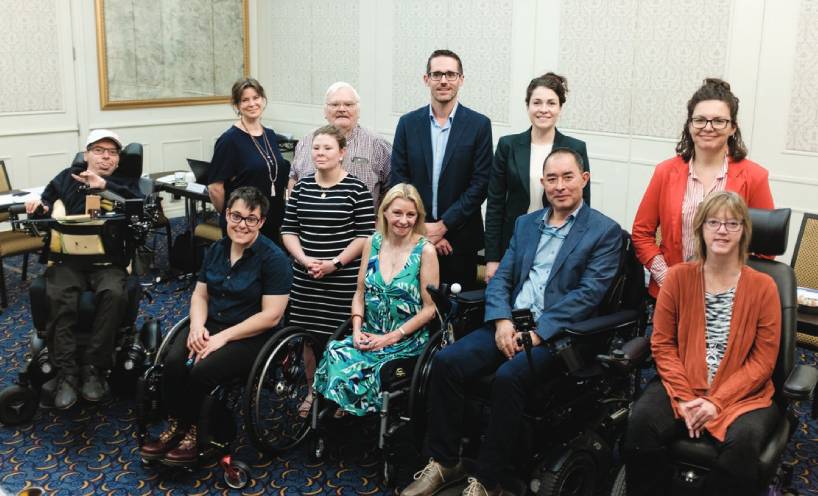
In our role advising the minister and the Victorian Government, we share the stories and experiences of people with disability to shape policy and influence change. We work to make sure the needs of people with disability are not forgotten.
The past two years have been very difficult for people with disability in Victoria. As a council, we have worked hard to support inclusive responses to the coronavirus (COVID-19) pandemic. We have worked across Victorian government departments, providing advice on accessible information and the supports needed to get through the pandemic. We have also focused on improving the accessibility and responsiveness of health services, embedding universal design into infrastructure projects, and addressing barriers to employment.
We have taken your concerns about the National Disability Insurance Scheme (NDIS) to the Commonwealth Government and made some great gains. Throughout, we worked to amplify the voices of people with disability and champion the principles of co-design for all new projects and reform activities. We are proud of the work we have done but know there is still much to do.
We welcome the launch of this new state disability plan. In the next four years we want to continue to influence long-term change.
In the consultations to develop this plan we have heard about your challenges and your concerns. We were grateful that you were so open with us. We want to make things better and fairer for Victorians with disability.
The COVID-19 pandemic has highlighted inequality and the impacts of discrimination on the lives of people with disability. We don’t yet know what participation and inclusion can look like in this radically altered world, or how climate change will influence our future. We need to work together and listen to each other to tackle these profound changes.
Victorians with disability are resilient and proud, but we still face ableism. We still face segregation and exclusion. The new state disability plan will have an ongoing focus on changing attitudes through social change campaigns and community and workforce education.
The plan will look at ways we can celebrate our identity. The new priority area of ‘pride and recognition’ aims to promote initiatives that support people with disability to express all parts of their identity authentically and celebrate who they are. A new priority focus on the ‘right to expression of sexuality and gender identity’ aims to build the supports for freely enjoying sex, sexual identity and parenthood.
Victorians face barriers in accessing all parts of community life. Within this plan we hope to take action to remove these barriers – including those relating to transport, housing, education and employment. We hope that the plan will work to remove barriers for all people with disability, inclusive of culture, language, faith, geographic location, socioeconomic status, gender, age, ability, sexuality or gender identity.
We want to see this state disability plan work to ensure the experiences of people with disability are heard in all parts of the Victorian Government. We want to see all Victorians listening to and learning from people with disability. We also want to see action.
It is our sincere hope that this state disability plan takes us further forward on our journey to realising true and lasting equality. We look forward to working with you to get there.
Dr George Taleporos
Chair
Victorian Disability Advisory Council
Definitions of key words used on this page
Accessibility: The extent to which people with disability can access something like an office, worksite or public area.
Co-design: The process of involving people with disability in designing, delivering and evaluating a policy, program or service.
Commonwealth: The Commonwealth Government of Australia.
NDIS: Jointly funded by the Commonwealth and state and territory governments, the National Disability Insurance Scheme provides access to disability supports for eligible people with disability.
Priority area: An area of the plan where we will be taking action to make improvements – for example, transport and education.
Universal design: Making spaces, policies and programs that are inclusive, accessible and can be used independently by all people.
Victorian Disability Advisory Council: A group of people with lived experience of disability who provide advice to the Minister for Disability about how to make Victoria more inclusive and accessible.
Updated